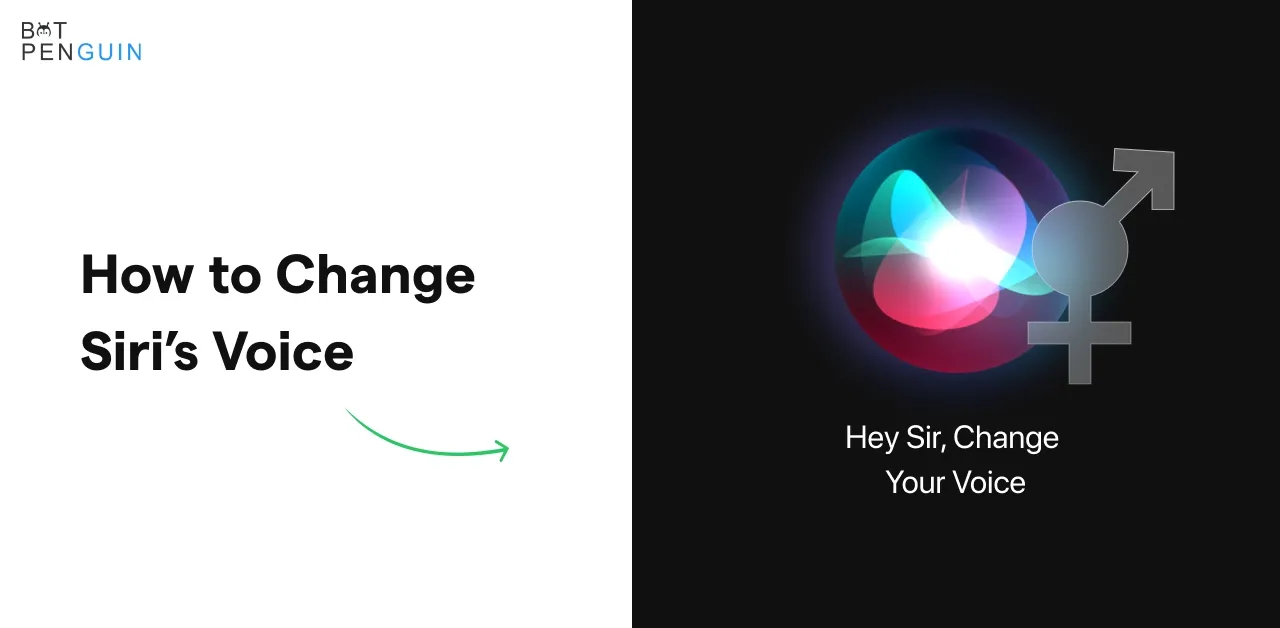As remote work continues to gain traction, the virtual call center market is slated to expand at a significant CAGR of 22.7% between 2020 and 2026.
Virtual call centers empower businesses to optimize their operations while harnessing the power of remote teams for delivering exceptional customer service.
With numerous platforms and service providers vying for attention, selecting the perfect fit for your organization might seem daunting.
In this blog post, we'll delve into the top 5 must-have features of a virtual call center, highlighting how these essential components drive productivity, enhance customer satisfaction, and enable smooth collaboration among remote teams in any industry.
What is a Virtual Call Center?
A virtual call center is a customer service center operating entirely online. Instead of having a physical location, agents work remotely from their homes or other sites. Customers can reach these agents through various phone, email, or chat channels.
5 Must-Have Features of a Virtual Call Center
Flexibility
Integration with CRM
Call Recording and Monitoring
Real-time Analytics
1. Flexibility
In a virtual call center, agents work remotely and have more flexibility than those in traditional call centers. This flexibility allows them to work from anywhere, at any time, which can lead to increased productivity and job satisfaction. Additionally, flexibility will enable businesses to scale their operations more efficiently, as they can quickly add or remove agents as needed.
Achieving Flexibility in a Virtual Call Center
There are several ways to achieve flexibility in a virtual call center. Cloud-based software allows agents to access customer information and other resources from anywhere. Managers should be able to monitor agents in real-time. This will enable them to provide feedback and coaching.
Another way to achieve flexibility is to offer agents flexible schedules. This can include part-time or full-time work and the ability to choose their hours. This can lead to increased job satisfaction and a better work-life balance.
Examples of How Flexibility Can Benefit a Business
Flexibility can benefit a business in several ways. For example, it allows them to quickly scale their operations up or down as needed without worrying about the costs of a physical call center. Additionally, it can lead to increased productivity and job satisfaction among agents, leading to better customer service.
Flexibility can also help businesses better serve their customers. For example, if a customer needs assistance outside of normal business hours, a flexible virtual call center can provide that assistance. This can lead to increased customer loyalty and satisfaction.
2. Integration with CRM
Integration with Customer Relationship Management (CRM) software is crucial in a virtual call center because it allows agents to access customer information quickly and easily. This information can include previous interactions, purchase history, and customer preferences. With this information at their fingertips, agents can provide personalized service and resolve issues more efficiently.
How Can Integration with CRM Benefit a Business?
Integration with CRM can benefit a business in several ways. First, it can lead to increased efficiency and productivity. Agents can spend less time searching for customer information and more time resolving issues. Additionally, it can lead to improved customer satisfaction and loyalty. Customers are more likely to return and recommend the business to others by providing personalized service.
Integration with CRM can also provide valuable insights into customer behavior. For example, businesses can track customer interactions and identify trends or areas for improvement. This can help them make data-driven decisions to improve customer service and overall business operations.
Examples of How Integration with CRM Can Improve Customer Service
Integration with CRM can improve customer service in several ways. For example, if a customer contacts the virtual call center with an issue, the agent can quickly access their customer information and previous interactions. This allows them to provide personalized service and resolve the issue more efficiently.
Integration with CRM can also improve customer service by providing a seamless experience across channels. For example, suppose a customer contacts the business through social media. In that case, the agent can access their customer information and previous interactions just as they would if the customer contacted them through phone or email.
3. Call Recording and Monitoring
Call recording and monitoring are crucial in a virtual call center because it allows managers to monitor agent performance and ensure quality customer service. It also provides a record of customer interactions, which can be used for training or resolving disputes.
How Call Recording and Monitoring Can Benefit a Business
Call recording and monitoring can improve agent performance. Managers can identify areas for improvement and provide coaching and feedback to agents. This can lead to improved customer service and increased satisfaction.
Call recording and monitoring can also provide valuable insights into customer behavior. For example, businesses can track customer interactions and identify trends or areas for improvement. This can help them make data-driven decisions to improve customer service and overall business operations.
Examples of How Call Recording and Monitoring Can Improve Customer Service
Call recording and monitoring can improve customer service in several ways. For example, if a customer contacts the virtual call center with an issue, the agent can record the call and provide a transcript to the customer. This allows the customer to review the conversation and ensure their issue was resolved satisfactorily.
Call recording and monitoring can also improve customer service by providing a record of customer interactions. For example, if a customer contacts the business with a complaint, the call recording can be used to train agents on handling similar situations in the future. Additionally, call recordings can be used to resolve disputes or provide evidence in legal proceedings.
4. Interactive Voice Response (IVR)
IVR is crucial in a virtual call center because it allows customers to self-serve and quickly get the necessary information. This can reduce the number of calls that agents need to handle and improve the overall efficiency of the call center.
How Can IVR Benefit a Business?
IVR can benefit a business in several ways. First, it can lead to increased efficiency and productivity. By allowing customers to self-serve, agents can spend less time on routine inquiries and more time resolving complex issues. Additionally, IVR can reduce the number of calls agents must handle, reducing staffing costs.
IVR can also improve the customer experience. Businesses can improve customer satisfaction and loyalty by providing a seamless and efficient way for customers to get the information they need. Additionally, IVR can provide valuable insights into customer behavior. For example, businesses can track customers' options and use this information to improve the IVR system and overall customer service.
Examples of How IVR Can Improve Customer Service
IVR can improve customer service in several ways. For example, if a customer contacts the virtual call center with a routine inquiry, they can be directed to the IVR system to get the necessary information. This can reduce wait times and improve the overall customer experience.
IVR can also improve customer service by providing a personalized experience. For example, if a customer has previously interacted with the business, the IVR system can recognize their phone number and provide customized options based on their interactions.
5. Real-time Analytics
Virtual call centers have become increasingly popular in today's business environment. However, it's essential to have real-time analytics in place to provide quality customer service. In this post, we'll explore why real-time analytics is crucial, how it can benefit a business, and examples of how it can improve customer service.
How Real-time Analytics Can Benefit a Business
Real-time analytics can benefit a business in several ways. First, it can lead to improved agent performance. By monitoring agent performance in real time, managers can identify areas for improvement and provide coaching and feedback to agents. This can lead to improved customer service and increased customer satisfaction.
Real-time analytics can also provide valuable insights into customer behavior. For example, businesses can track customer interactions in real-time and identify trends or areas for improvement. This can help them make data-driven decisions to improve customer service and overall business operations.
Examples of How Real-time Analytics Can Improve Customer Service
Real-time analytics can improve customer service in several ways. For example, if a customer contacts the virtual call center with an issue, managers can monitor the call in real time and guide the agent. This can help ensure that the customer's problem is resolved quickly and to their satisfaction.
Real-time analytics can also improve customer service by providing insights into customer behavior. For example, if many customers are contacting the business with the same issue, managers can identify the issue in real time and take steps to resolve it quickly. Additionally, real-time analytics can help identify areas for improvement in the IVR system or other customer service processes.
Conclusion
Virtual call centers have become increasingly popular in today's business environment and for a good reason. By embracing these must-have features, businesses can provide quality customer service, improve customer satisfaction and loyalty, and enhance business operations.
However, for an unbeatable customer experience, the integration of AI based chatbots is essential. This is where BotPenguin steps in.
As a proficient AI-chatbot platform, BotPenguin helps businesses automate routine tasks, ensures real-time customer engagements, and facilitates personalized experiences.
Combining BotPenguin's chatbots with your Virtual Call Center not only optimizes your customer service approach but also opens avenues for superior, innovative, customer-centric solutions.
Overall, it's a combination that leads to accelerated business growth and higher customer satisfaction levels.
Sign up today and discover it for yourself!
Frequently Asked Questions
What are the must-have features of a virtual call center?
The must-have features of a virtual call center include robust cloud-based technology, seamless call routing, real-time monitoring and analytics, integrated CRM systems, and flexible scalability options.
How does cloud-based technology benefit a virtual call center?
Cloud-based technology provides remote access to call center software and data, allowing agents to work from anywhere. It enables easy scalability, reduces infrastructure costs, and facilitates seamless integration with other tools.
How does flexible scalability benefit a virtual call center?
Flexible scalability allows virtual call centers to adjust their agent capacity based on fluctuating call volumes. It ensures optimal resource allocation, cost-effectiveness, and the ability to handle peak periods without compromising service quality.
What security measures should a virtual call center have in place?
A virtual call center should prioritize security measures such as encrypted communication channels, access controls, data backups, and compliance with industry standards like GDPR or HIPAA to protect customer information and maintain data privacy.
How can a virtual call center ensure agent productivity?
To ensure agent productivity, virtual call centers can provide performance tracking tools, remote coaching and training opportunities, clear performance expectations, and regular feedback sessions. Effective communication channels and collaboration tools also play a crucial role.



